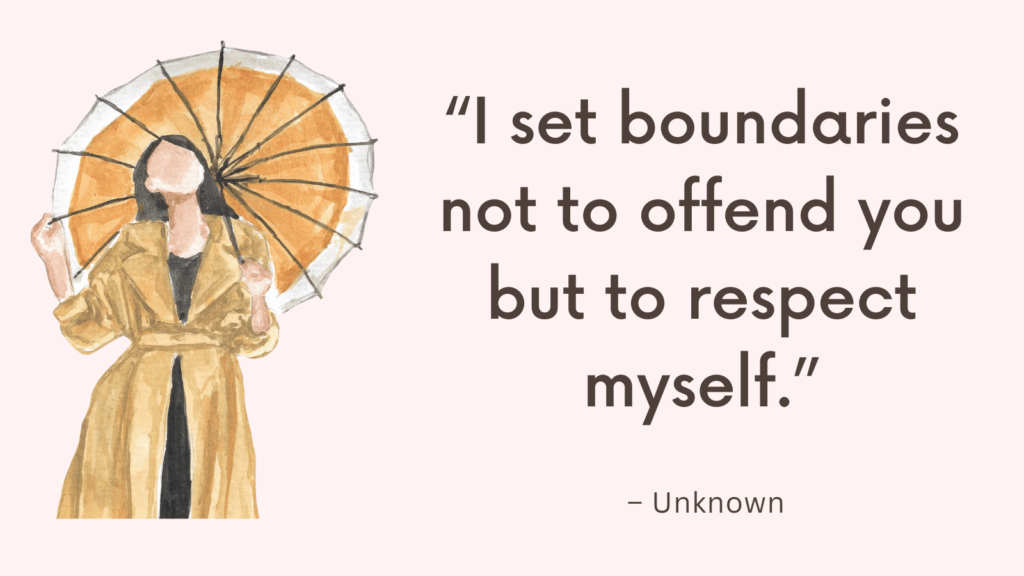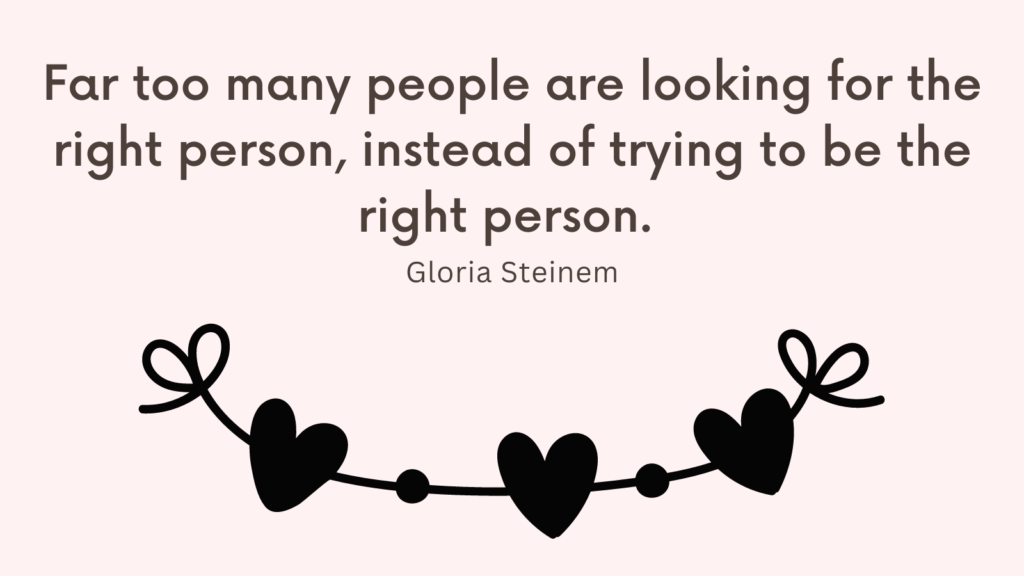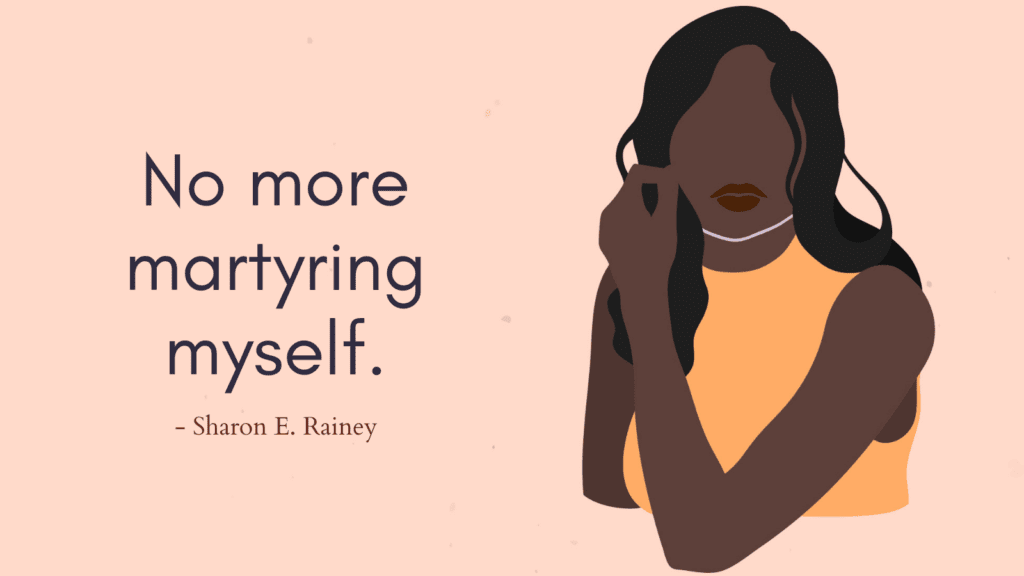When people criticize you, ignore you, misunderstand you, or push your buttons, it’s easy to feel shaken or thrown off course.
But letting others define your emotional state gives away your peace.
The goal isn’t to become numb—it’s to build inner steadiness so other people’s behavior doesn’t control your sense of worth or calm.
In this post, you’re going to learn how to not let people get to you.
What does it really mean to “not let people get to you”?
It means learning how to manage your emotional responses when others criticize, provoke, or misunderstand you — without allowing their words or actions to control your peace of mind or self-worth.
How to Not Let People Get to You?
1. Self-awareness
A key step in not allowing people to get to you is developing self-awareness.
Pay attention to your own thoughts, emotions, and reactions when interacting with others.
Identify triggers or patterns that tend to affect you negatively.
Engaging in mindfulness exercises, such as meditation or deep breathing techniques, can help you cultivate self-awareness and become more attuned to your own internal experiences.
Related: Lack Of Self Awareness: 5 Signs & 5 Tips On How To Increase Self-Awareness
2. Emotional regulation
Learning to manage and regulate your emotions is crucial in not allowing others to affect you deeply.
Recognize and validate your emotions. Accept that it is natural to experience a range of emotions.
Instead of suppressing or denying them, try to acknowledge and validate what you are feeling. This allows you to address your emotions constructively.
Challenge negative thoughts or assumptions you may have about yourself or the situation.
Replace negative self-talk with more balanced and realistic perspectives. Focus on your strengths and build confidence in your abilities.
Related: Emotional Dysregulation Test [A Quick Test]
3. Set boundaries
Establishing healthy personal boundaries is essential for protecting your emotional well-being.
Let others know your limits and expectations in terms of how you wish to be treated. Be assertive in expressing your needs and feelings without being aggressive or confrontational.
It’s okay to decline requests or invitations if they do not align with your own priorities or values. Prioritize your own needs and don’t feel guilty for taking care of yourself.
4. Develop empathy
Cultivating empathy can help you understand others’ perspectives and reduce the impact their words or actions have on you.
Truly listen and try to understand where others are coming from.
Validate their feelings, even if you may not agree with their opinions.
Responding with empathy can defuse potential conflicts and foster healthier relationships.
Related: How To Become A Stronger Empath? Top 20 Actionable Empathy Exercises to Become More Empathetic
5. Build a support network
Surrounding yourself with supportive and positive individuals can offer validation, encouragement, and guidance.
Connect with friends, family members, or support groups who can provide a safe space for you to share your emotions and experiences.
Having someone to talk to can help you gain new insights and perspectives.
6. Focus on self-care
Taking care of yourself physically, mentally, and emotionally is vital in maintaining resilience and preventing others from getting under your skin.
Engage in activities that bring you joy and help you relax, such as hobbies, exercise, or spending time in nature.
Practice healthy lifestyle habits, including regular sleep, a balanced diet, and stress reduction techniques.
Related: Best 100 Self Care Affirmations To Honor Yourself
7. Practice self-compassion
Treat yourself with kindness and compassion. Acknowledge that everyone makes mistakes and faces challenges.
Be gentle with yourself during difficult times and remind yourself that your worth is not determined by others’ opinions.
What to Do If People Get to You?
Sometimes, no matter how strong or grounded you try to be, someone’s words or actions get to you. Maybe it hurt, maybe it triggered old pain, maybe it caught you off guard. That doesn’t mean you’re weak—it means you’re human. What matters most is how you take care of yourself after the sting.
1. Admit It Got to You—Without Shame
Say it plainly: “That really got under my skin.”
Owning your reaction doesn’t make you fragile—it gives you power to work with it, instead of hiding from it.
2. Let Yourself Feel—Briefly
Give yourself a moment to feel the anger, sadness, embarrassment, or hurt. Cry, vent, walk it out—whatever helps the emotion move through you instead of getting stuck inside.
3. Ask Yourself What It Touched
Was it rejection? Injustice? A childhood wound? An insecurity?
Understanding why it hurt is the key to healing the right thing—not just reacting to the surface moment.
4. Give Yourself the Words You Didn’t Get
Maybe you needed validation, kindness, or protection. Offer it to yourself now:
“You didn’t deserve that.”
“You’re allowed to be hurt.”
“You matter—even when others don’t act like it.”
5. Respond—Don’t React
If a response is needed, wait until you’re calm. Respond with clarity, not emotion. If no response is needed, choose silence as strength.
6. Reaffirm Who You Are
Don’t let their words rewrite your story. Remind yourself:
“I know who I am.”
“I don’t need their approval to be enough.”
“I’m not what they projected onto me.”
7. Do Something That Grounds You
Step away from the situation and return to yourself—deep breathing, stretching, journaling, walking outside, listening to music, praying. Let your body and mind reset.
8. Learn Something From It
Ask: “What does this teach me about my boundaries, my triggers, or the people I want in my life?”
Even painful moments offer insight.
9. Talk to Someone Who Gets It
Share it with someone who won’t minimize your experience. Sometimes just being heard is enough to release the grip.
10. Reclaim Your Energy
When someone gets to you, they steal your mental space. Take it back. Focus on what matters to you, not them. You don’t need to carry their words with you into tomorrow.
Why Do I Let Other People’s Actions Affect Me?
Understanding the reasons behind why you allow other people’s actions to impact you can help shed light on potential areas of personal growth and development.
1. Empathy and Emotional Sensitivity
Many people naturally possess a high degree of empathy and emotional sensitivity.
They have a tendency to connect deeply with others and, as a result, may be more profoundly influenced by the actions and emotions of those around them.
This heightened sensitivity could explain why you allow other people’s actions to affect you.
2. Attribution Bias
Attribution bias refers to the cognitive process through which we attribute specific causes or motives to the actions of others.
When someone’s behavior negatively impacts us, we tend to seek explanations for their actions, often internalizing them and assuming they are a reflection of our own worth or competence.
Recognizing this bias can help differentiate between others’ actions and our own self-worth.
Related: Top 18 Self Esteem Exercises (+FREE CBT For Self-Esteem Worksheets PDF)
3. Past Experiences and Conditioning
Previous experiences, especially those involving significant emotional impact, can shape how we respond to similar situations in the present.
If you have been hurt or disappointed by others in the past, it is natural to be more cautious and sensitive to their actions.
Exploring and processing these past experiences with a therapist can help you develop healthier coping mechanisms.
4. Fear of Rejection or Abandonment
Humans have an innate need for social connection, acceptance, and belonging.
Consequently, we may fear being rejected or abandoned by others.
When we perceive that someone’s actions might jeopardize our relationships or social standing, we may become more reactive and vulnerable to their behavior.
Building resilience and strengthening your sense of self-worth can help reduce this fear.
Related: Best 10 Self Esteem Books
5. Perfectionism and High Standards
If you hold yourself and others to high standards, you may be more prone to negative emotional responses when those standards are not met.
The discrepancy between expectations and reality can evoke disappointment, frustration, or feelings of inadequacy.
Practicing self-compassion and adopting a flexible mindset can assist in managing these emotions.
6. Cognitive Distortions
Cognitive distortions are biased patterns of thinking that can influence how we interpret events and situations.
Common distortions related to the behavior of others include personalization (assuming everything is about you), mind-reading (believing we know others’ intentions), or overgeneralization (making broad conclusions based on limited experiences).
Becoming aware of these distortions and challenging them with more realistic and balanced thoughts can reduce their impact.
Related: What Causes Cognitive Distortions? (+Top 10 Common Cognitive Distortions & How To Challenge Them)
7. Boundaries and Self-Care
Sometimes, allowing others’ actions to affect us excessively may indicate weak boundaries or neglecting our own self-care.
It is essential to establish healthy boundaries, both emotionally and physically, to protect our well-being and prevent others from intruding on our emotional space.
Engaging in self-care practices, such as exercise, mindfulness, and pursuing hobbies, can also help build resilience and foster emotional regulation.
Understanding these factors is the first step toward making positive changes.

Conclusion
Remember, developing these skills takes time and practice.
Be patient with yourself as you work on not allowing others to affect your emotional well-being.



